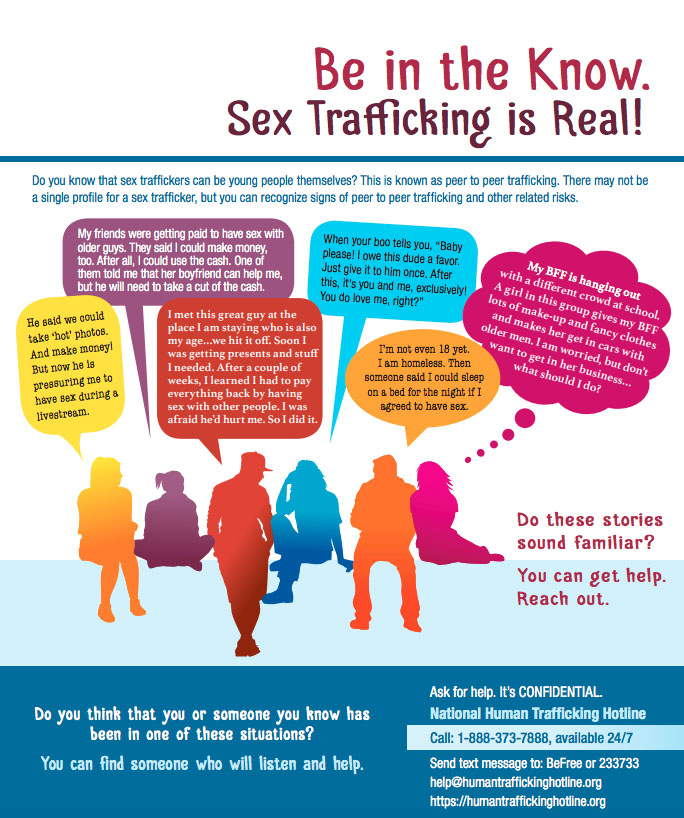Sex Trafficking: Helping Students Get Informed
By Pamela Anderson, PhD | January 11, 2018
Sex trafficking among U.S. teens is real. It’s happening in most communities—in schools, at the mall, online and in other situations. If you work with young people, I hope you’ll check out some new free resources you can use to share facts about youth trafficking with both young people and adults.
The Family & Youth Services Bureau has produced two new colorful infographics—one geared for youth, the other for adults. You can download PDFs to post the infographics online or print them out as posters. ETR played a role in the development of these materials, and we are proud to have been part of the team.
A Different Focus: Peer to Peer Trafficking
The infographics focus specifically on the issue of peer to peer trafficking. They address trafficking situations young people may face with same-age or near-age peers. While some youth understand that there are older men who exploit young women, many are puzzled by these situations that involve friends and romantic partners.
A boyfriend asks his partner to have sex with someone else as a favor. A new friend demands sex as payback for providing shelter and food to a youth who has become homeless. Friends tell other friends they can make easy money having sex with older guys. These are real stories young people have told. Youth involved in these types relationships do not necessarily see themselves as exploited or victimized.
Anyone interested in getting help or additional information can check out the infographic about how to call, text, or visit the website of the National Human Trafficking Hotline.
Progress!
ETR has had a longstanding interest in adolescent sexual health and sex trafficking. We’ve written earlier posts on What Educators Need to Know About Online Sex Trafficking, What Young People Need to Know About Sex Trafficking, and Adolescent Sexual Exploitation—New Keys for Prevention (where we first wrote about the phenomenon of peer to peer trafficking).
It takes vision and optimism to move forward in this work. When adults working with youth make the effort to educate themselves, then reach out, listen and support youth, we have a chance to make a real difference. We are excited to see FYSB getting the word out, using language and stories that resonate with youth, and sharing resources that can help us all.
Pamela Anderson, PhD, is a Senior Research Associate at ETR with more than 10 years of experience conducting research in the area of sexual and reproductive health.





